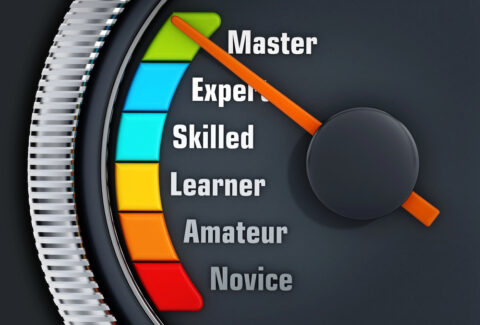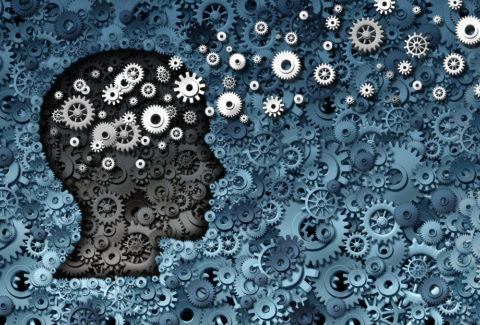Psychological Factors in Behavior Change and Motivation
Behavior change is a multifaceted process influenced by various psychological factors that shape an individual’s motivation, intentions, and actions.[1] Understanding these psychological influences is essential for practitioners seeking to facilitate effective behavior change in their clients. This article explores key psychological factors that impact behavior change and motivation, offering insights into how these elements can be leveraged to foster positive transformations.
Cognition and Perception
Cognitive processes, including thoughts, beliefs, and perceptions, significantly influence behavior change. Key aspects include:
- Self-Efficacy: Self-efficacy[2] refers to an individual’s belief in their ability to successfully perform a specific behavior. Higher levels of self-efficacy are associated with greater motivation and persistence in pursuing behavior change. Individuals who believe they can achieve their goals are more likely to take the necessary steps toward change.[3]
- Attribution Styles: How individuals attribute their successes or failures impacts their motivation.[4] Those with an internal attribution style—who attribute outcomes to their efforts—tend to have higher motivation than those with an external attribution style, who may blame external factors for their challenges.
- Cognitive Dissonance: This psychological theory suggests that individuals experience discomfort when their beliefs and behaviors are inconsistent.[5] This dissonance can motivate individuals to change their behaviors to align with their beliefs, thereby reducing discomfort.
Emotions and Affective States
Emotional states play a significant role in influencing behavior change. Emotional responses can either facilitate or hinder motivation:
- Positive Emotions: Emotions such as joy, excitement, and satisfaction can enhance motivation and encourage individuals to engage in behaviors that promote well-being. Positive emotional experiences[6] associated with behavior change can reinforce the desire to continue those behaviors.
- Negative Emotions[7]: Conversely, negative emotions such as fear, guilt, or anxiety can impede motivation. For example, fear of failure may prevent individuals from attempting to change a behavior. However, understanding and managing these emotions can be critical in promoting resilience and motivation for change.
- Goal Setting and Commitment: Goal setting is a powerful psychological factor that influences motivation and behavior change.[8] Setting specific, measurable, attainable, relevant, and time-bound (SMART) goals can enhance motivation by providing clarity and direction:
- Commitment to Goals: The level of commitment[9] individuals feel toward their goals can significantly impact their motivation. Individuals who make a public commitment to their goals or who share their goals with others may be more motivated to follow through due to social accountability.
- Progress Monitoring: Regularly tracking progress toward goals can boost motivation and enhance self-efficacy. Celebrating small achievements along the way can reinforce the belief that change is possible, fostering continued commitment to the process.
Mindset and Attitude
An individual’s mindset and attitude toward change can significantly influence their motivation:
- Growth Mindset: Individuals with a growth mindset believe that their abilities and intelligence can be developed through effort and learning.[10] This perspective fosters resilience and encourages individuals to embrace challenges, view setbacks as opportunities for growth, and remain motivated in their pursuit of behavior change.
- Positive Attitude: A positive attitude toward change and the belief that it is achievable can enhance motivation.[11] Individuals who approach change with optimism are more likely to engage in behaviors that support their goals and maintain their motivation in the face of obstacles.
Social Support and Influence
Social factors, including relationships and social networks, can significantly impact motivation and behavior change:
- Social Support: Having a supportive network of friends, family, or colleagues can enhance motivation and provide encouragement during the behavior change process. Supportive relationships can foster accountability and create a sense of belonging, making it easier for individuals to pursue change.
- Social Influence: Observing the behaviors of others can impact motivation. Individuals may be motivated to change their behaviors by seeing peers or role models successfully engage in healthy habits. This social influence can create a sense of community and shared purpose, promoting collective motivation.
Barriers to Change
Understanding psychological barriers that individuals face is essential for facilitating behavior change:
- Fear of Failure: Fear of failure[12] or making mistakes can prevent individuals from attempting to change behaviors. Recognizing and addressing these fears through supportive coaching and gradual exposure can enhance motivation.
- Procrastination[13]: Psychological factors such as perfectionism and anxiety can contribute to procrastination, which hinders motivation. Strategies that promote time management, self-compassion, and incremental progress can help individuals overcome these barriers.
Conclusion
Psychological factors play a critical role in shaping behavior change and motivation. By understanding the cognitive, emotional, and social influences on individuals, practitioners can design effective interventions that facilitate positive behavior change. Strategies that enhance self-efficacy, promote positive emotions, leverage social support, and address psychological barriers can empower individuals to pursue their goals and create lasting transformations. Ultimately, acknowledging and addressing these psychological factors is essential for fostering sustainable behavior change and improving overall well-being.
[1] Maio, Gregory R., et al. “Social psychological factors in lifestyle change and their relevance to policy.” Social Issues and Policy Review 1.1 (2007): 99-137.
[2] Bandura, Albert, and Nancy E. Adams. “Analysis of self-efficacy theory of behavioral change.” Cognitive therapy and research 1.4 (1977): 287-310.
[3] Rieder, Annamina, Christiane Lehrer, and Reinhard Jung. “How Behavior Change Support Systems Influence Self-Efficacy: a Qualitative Study using Wearables.” ECIS. 2019.
[4] Hurley, Alexander Ross. Assessing Depression and Attributional Styles as Determinants of Engagement in Digital Behavior Change Interventions. Diss. The University of North Carolina at Chapel Hill, 2023.
[5] Gruber, Marcia. “Cognitive dissonance theory and motivation for change: a case study.” Gastroenterology Nursing 26.6 (2003): 242-245.
[6] Shiota, Michelle N., et al. “Positive affect and behavior change.” Current Opinion in Behavioral Sciences 39 (2021): 222-228.
[7] Wang, Xiao. “The role of anticipated negative emotions and past behavior in individuals’ physical activity intentions and behaviors.” Psychology of Sport and Exercise 12.3 (2011): 300-305.
[8] Nowack, Kenneth. “Facilitating successful behavior change: Beyond goal setting to goal flourishing.” Consulting Psychology Journal: Practice and Research 69.3 (2017): 153.
[9] Baca-Motes, Katie, et al. “Commitment and behavior change: Evidence from the field.” Journal of consumer research 39.5 (2013): 1070-1084.
[10] Burnette, Jeni L., et al. “A systematic review of growth mindset intervention implementation strategies.” Social and personality psychology compass 17.2 (2023): e12723.
[11] Shiota, Michelle N., et al. “Positive affect and behavior change.” Current Opinion in Behavioral Sciences 39 (2021): 222-228.
[12] Zanchetta, Mirjam, et al. ““Overcoming the fear that haunts your success”–the effectiveness of interventions for reducing the impostor phenomenon.” Frontiers in psychology 11 (2020): 405.
[13] Savira, Siti Ina, and Fadhillah Nur Lathifah. “Overcoming Procrastination; Cognitive Restructuring to Support Positive Behavior Change.” International Joint Conference on Arts and Humanities 2022 (IJCAH 2022). Atlantis Press, 2023.







